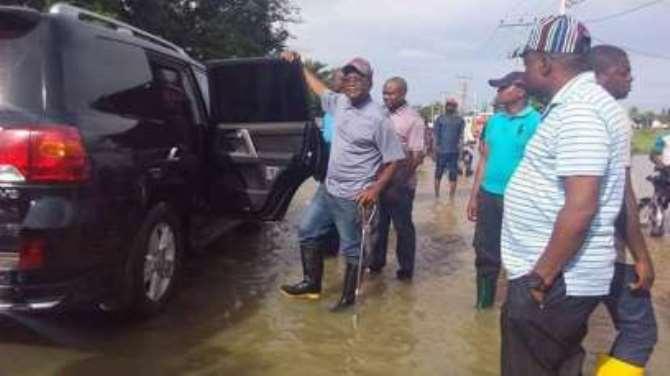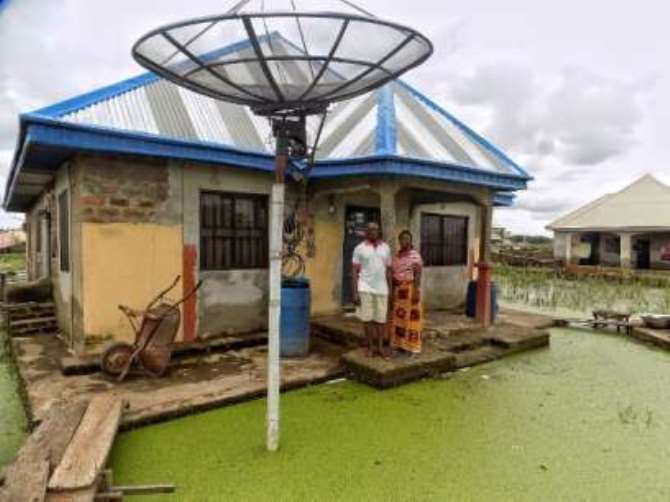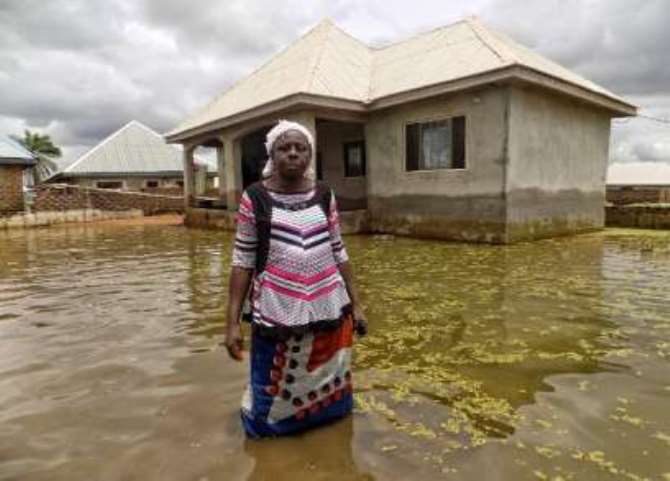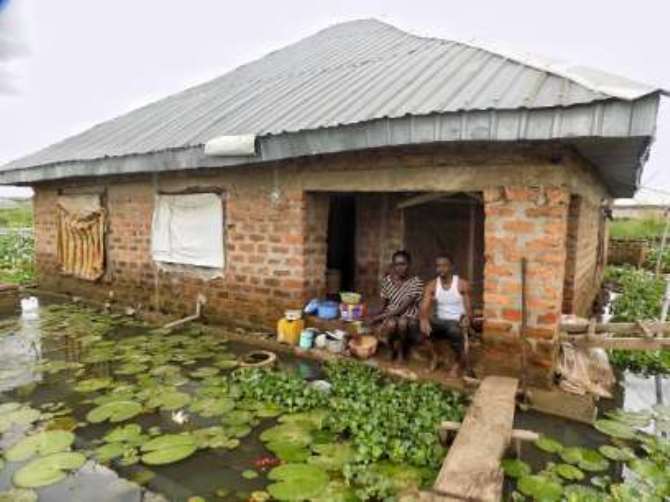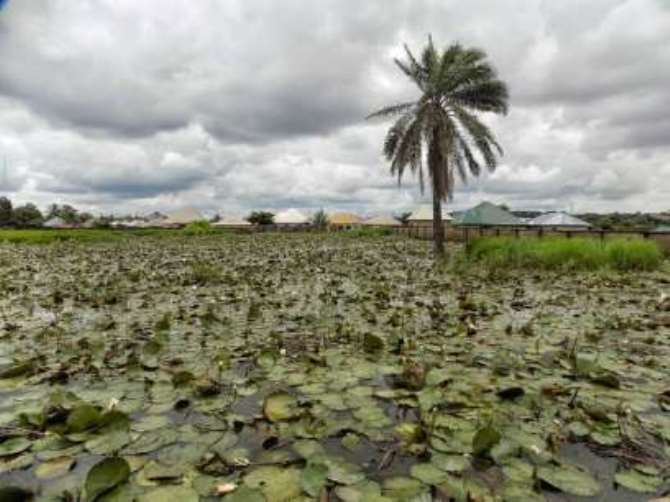[PHOTOS] Makurdi residents count their losses as water recedes
Over 200,000 people were displaced by the Benue flood.
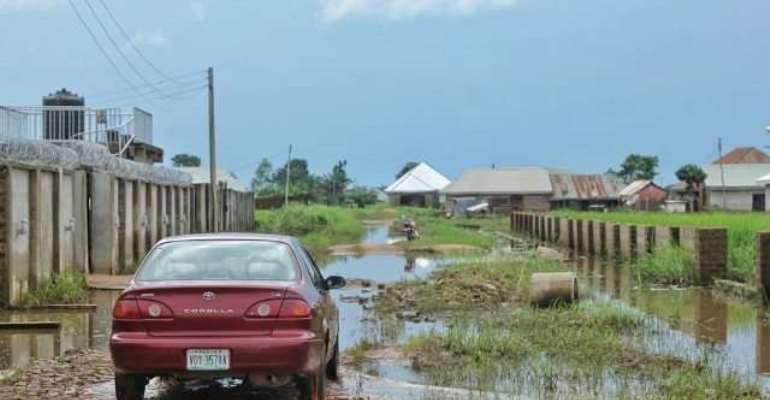
It’s no longer news that Makurdi, the Benue state capital was submerged by flood.
The flood which resulted from torrential rainfall was said to have displaced over 200,000 people.
Slow response both from the State and Federal Government did not help the situation.
Benue State Governor Samuel Ortom arrives a flooded area
(The Nation)
Tales of lack of food, mattresses and mosquito treated nets abound at the camp in yet-to-be-occupied Modern Market.
As the flood water gradually recedes, some affected residents who moved in with friends and family members are beginning to return home.
Mr and Mrs Leo Apaluwa standing in front of what is left of their house after the flood Idie Nenge behind Dagbo plaza, Makurdi.
(Blaize Eche Itodo)
Nylon bags stock to sticks and metals, stagnant waters with algae afloat… These are common sights at some of the affected locations.
“Mrs Joy Ogwu a widow with the Nigerian Police Force,” said Benue-born photographer, Blaize Eche Itodo who is documenting the moments.
Mrs Joy Ogwu, a victim of the Makurdi flood
(Blaize Eche Itodo)
“She was on duty when the flood waters came. She made it home after neighbours called to inform her of the havoc.
“Her credentials were all she could get to safety and that was because she threw it in the ceiling due to the level of water in her house when she got home,” he added.
Mr and Mrs Amen Emmanuel were affected by the Benue flood
(Blaize Eche Itodo)
Mr Amen Emmanuel, his wife and three children have resigned to fate as they sit in front of their once beautiful home patiently waiting for the waters to recede.
ALSO READ: NEMA deploys humanitarian team to assist victims
As the individuals and non-governmental organisations (NGOs) continue to donate food and other supplies to the flood victims, experts have blamed both the state government and residents for the flood.
Credentials destroyed during the flood
(Blaize Eche Itodo)
An activist and aid worker, Andy Kaggwa Obeya who called for the removal of houses from waterways and canals however urged the state government to construct more drainages within the city.
“A good portion of the greater Makurdi town lies in a flood plain making the town naturally prone to flooding,” Obeya told Pulse.
“Those who have lived in this town for a long time would attest to the fact that there is almost always an annual incidence of some flooding in Makurdi.
Days after the flood, residents battle to save what is left of their belongings.
(Blaize Eche Itodo)
“In past, this flooding was limited to the river bank area around Wurukum and Wadata although areas like Idye, Naka road and Gboko road often got swampy in the rainy season and many cultivated rice in these areas then.
“In the late 90s, the town began to experience exponential growth without commensurate expansion in available infrastructures. Areas that previous served as swamps during the raining season helping to absorb some of the excess waters got opened up and rapidly developed with no consideration for drainages, the capacity of the Benue river to hold water also kept reducing due to piling debris and the inability carry out a proper dredging of this river.
Makurdi flood
(Blaize Eche Itodo)
“The result is what we now see: worsening floods with more areas of the town getting affected by the floods. While I would not be fast to discard the effects of global warming and the increasing incidence of water disasters in West Africa, we must not fail to acknowledge the fact that we have done nothing to mitigate the perennial flood disasters in the Benue valley.
“The time to act is now. We need to read the tea leave, the rains will not get better. Climate change is here; we can however put up measures that would make us less vulnerable to the effects of the rains,” he added.

